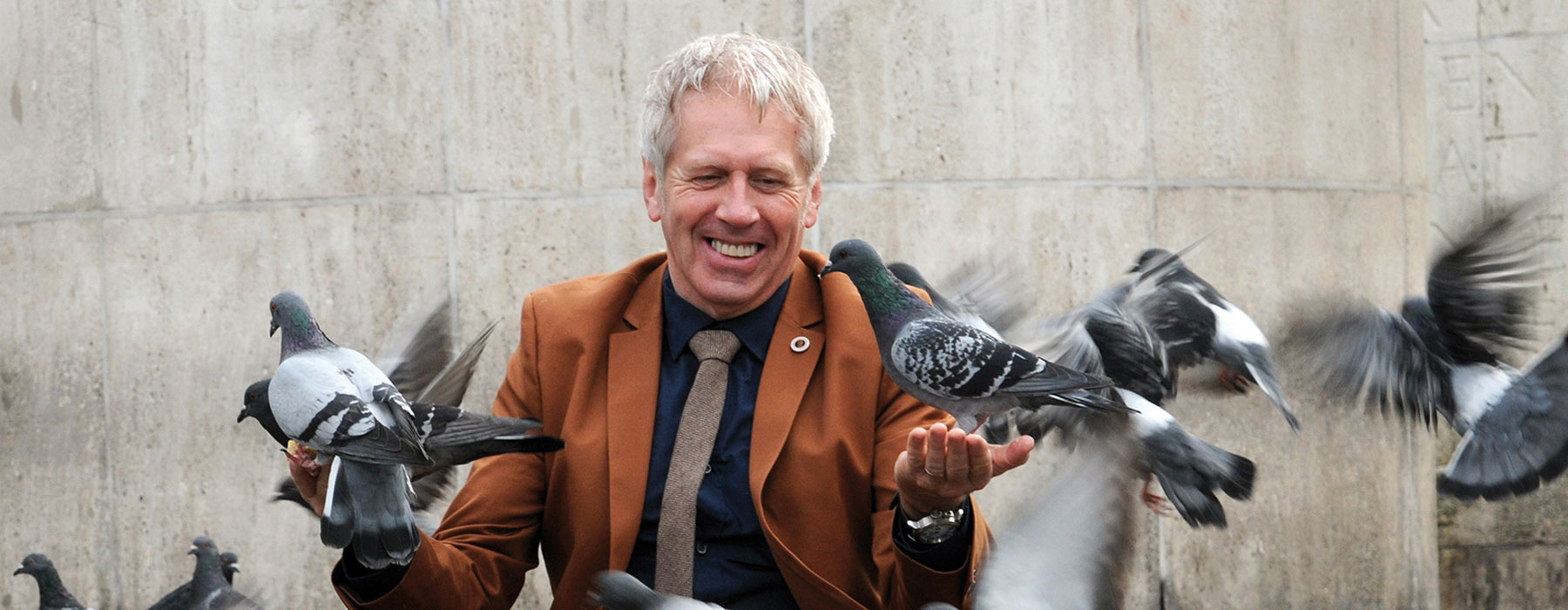NAME: JOHN GRATION
COMPANY: VISIE VOOR SUCCES
IN THE NETHERLANDS SINCE: IN THE LATE 1960s
Musician, entrepreneur, trainer and coach John Gration came to Amsterdam in the late 1960s and spent his first night on the Dam. After many wanderings he returned to The Netherlands, never again to leave. He mixed as much as possible with the Dutch in order to quickly learn the language and adopt the Dutch way of life. His consultancy, VisieVoorSucces (‘VisionForSuccess’), helps people to solve their problems and move on in their lives. He calls himself a creative problem solver. John’s strength is in observing and identifying what can be changed. He sees the Dutch as real go-getters: ‘When there’s a flood they build a dyke, instead of just looking up at the sky to see if it’s going to carry on raining’.
1. How long have you been in The Netherlands?
I came to The Netherlands for the first time as a musician in the late 1960s. I travelled on, to France, and there met my first wife. When she was pregnant we decided to return to The Netherlands.
2. How did you become an entrepreneur and why?
I have had many different jobs, including working for the Amsterdam municipality. I had many projects with them – in the areas of reintegration and employment. I was frequently asked to do assignments, in addition to my job, so I decided to start for myself in 1997. That turned out to be a good run-up to becoming fully independent. I had, in any event, always liked doing things my own way. As from 2005 I became a full time entrepreneur. In addition to ‘VisieVoorSucces’ I also have the JGC group: JGC consultancy, JGC music and the JGC foundation for non-profit organisations. ‘VisieVoorSucces’ is aimed mainly at businesses. I specialise in, among other things, reintegration, career coaching, outplacement and mediation.
3. Did you encounter problems when you wanted to become an entrepreneur?
No. I had schooled starters over the years, so I already knew a lot about the challenges involved in business.
4. What are the differences between doing business in The Netherlands and in England?
New products should be invented by the English, made by the Germans and sold by the Dutch. The Dutch are salespeople, just look at the flea markets on Queen’s day, or should I now say King’s day?
You don’t see that in England!
In The Netherlands you make an appointment to drink a cup of coffee. In other countries you’re around the table without an appointment. Eating together only comes much later in The Netherlands, and certainly not spontaneously at the first encounter.
5. What is typically Dutch when it comes to doing business and being an entrepreneur?
Here you are assessed on your resume and your qualifications. Unlike in America, where, for example, they look much more at your creativity and your personality. Job applications are also completely different: the Dutch send one letter to a hundred companies, an American chooses a business and focuses on it: ‘that’s where I want to work and I’m going for it’. I find it typically Dutch to play it safe: to study what’s on paper and then just await developments. They just don’t like new things. Thus their saying, ‘just act normally – that’s crazy enough’. I think the Dutch are far less service-oriented than Americans. My theory is that they don’t like offering service because they’re averse to being subservient. I also find the silo mentality really striking. The Dutch population is more or less divided into a number of silos, including catholic, liberal and socialist, and then everyone has their own sports association, trade union, broadcaster, newspaper, etc. But let me conclude positively: everything is well-organised in The Netherlands, information is easy to obtain and there are short lines of communication – and this is all very pleasant. It’s probably due to the fact that this is a small country with many residents, so you have to keep tabs on everything. Moreover, the Dutch can present themselves very well, can sell as well as anyone and know how to get on with things, as reflected in their characteristic attitude of, ‘less talk, more work’.
6. What have you taken from both the English and Dutch cultures?
From the English culture, courtesy, and from both countries the humour and the mindset.
7. Would you ever go back to England?
No.
8. What are the secrets of your success?
Positive thinking. Thinking in possibilities instead of impossibilities. I’m a people person and find personal relationships are very important. One of my mantras is: ‘A stranger is a friend that I haven’t yet met’.
9. What is your favourite fruit, and why?
I find many kinds of fruit delicious, but apples in particular. The Dutch say ‘an apple for thirst’. And we, ‘an apple a day keeps the doctor away’.
10. What is your favourite Dutch product and/or location?
Amsterdam, the world–class village!
TIPS from John
1. Learn to speak the language well. Foreigners who speak Dutch well get a lot more respect than foreigners who do not
2. Hang around with the Dutch
